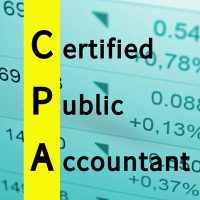Ethical Responsibilities Of CPAs

Licensed professionals need to abide by ethical guidelines. This is especially true for financial professionals such as certified public accountants (CPAs). CPAs serve as trusted financial advisors to help individuals and businesses with taxes, bookkeeping, financial planning, mergers, and other activities involving money. They may work for small businesses, government agencies, and large billion-dollar corporations.
When people work with money, there are a lot of ethical concerns involved. As a business owner, you may worry about competency, such as not being able to do your taxes correctly. You may worry about ethical issues, such as a CPA trying to steal your money or sharing your financial information with others. Your ethical concerns are certainly valid, as accountants are more likely to be fired for ethics violations rather than for reasons related to competency.
CPAs should be concerned about ethics as well. Poor judgment and lapses in ethics can have consequences for CPAs, including job loss, license suspension, and criminal prosecution.
Ethical Principles for CPAs
CPAs must follow these five principles:
- Professional competence
- Professional behavior
- Integrity
- Objectivity
- Confidentiality
In a nutshell, what this means is that CPAs should work with a high level of competency at all times (not taking shortcuts, for example), avoid sharing confidential information, and avoid potential conflicts of interest. We all make mistakes, though, and technical mistakes are favored over ethical issues. After all, you can always recover from a mistake if you catch it in time, are honest about it, and quickly fix it. It is often lapses in ethics that cause the most complications, since it’s hard to trust someone who is dishonest and unethical. As a result, this often leads to a CPA losing their job.
Common Ethical Issues
Ethical issues in the accounting industry are often caused by time management issues and the desire for financial gain. CPAs are often on time crunches. They are under pressure by tight deadlines, and this often causes them to make bad decisions. They may take shortcuts to complete a project on time or sign off on papers that have not been thoroughly reviewed, and these actions may come with ethical considerations.
Others take advantage of confidential information. Having a broad knowledge of a client’s financial situation can be helpful for a CPA who is interested in engaging in fraud for financial gain. This is, of course, improper behavior and a CPA accused of it can face disciplinary action as well as criminal penalties.
Keep Your License With Help From a Tampa Certified Public Accountant Licensing Lawyer
CPAs work with financial statements, which means they must have a high level of morality, ethics, and integrity. These qualities are almost as important as competence.
Tampa certified public accountant licensing lawyer David P. Rankin can help CPAs and other licensed professionals who are dealing with ethics violations and other administrative issues against their licenses. See how we can help you keep your license. Schedule a consultation by calling (813) 968-6633 or filling out the online form.
Source:
becker.com/blog/cpa-ethics-ethical-responsibilities-of-accountants

